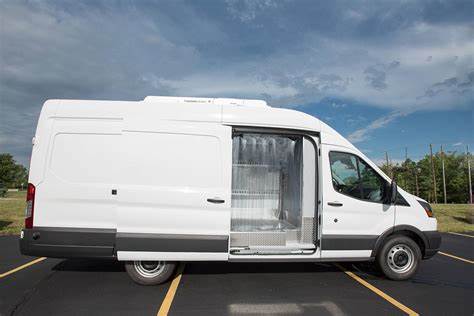The problem of food waste is a global issue, with a massive amount of perishable items going to waste before ever reaching consumers. The supply chain, which can extend over great distances, is often the cause of these losses. Temperature controlled logistics is one innovative solution to this problem by ensuring that the storage conditions are kept just right all the way from the source to the final destination.
The Role of Refrigerated Transport in Preserving Freshness
Reducing spoilage often depends on maintaining a consistent temperature throughout the journey from farm to fork. Refrigerated transport systems are designed to handle various needs, such as fresh produce, dairy products, or frozen goods. Run It Cool refrigerated transport is one such option that helps ensure perishables remain at the right temperature.
Enhancing Efficiency Across the Supply Chain
Streamlined Processes for Perishable Goods
Temperature regulated vehicles help reduce delays and ensure products are delivered in perfect condition. By streamlining logistics in order to minimize handling times, freshness is maintained and operational inefficiencies are reduced.
Smart Monitoring Systems
Refrigerated vehicles with advanced tracking technologies send real time updates on temperature and humidity levels. This remote refrigeration monitoring gives logistics providers the ability to tackle possible problems on the spot, so perishable goods remain intact.
Reducing Environmental Impact
Lowering Food Losses to Combat Waste
Less resources are wasted when spoilage is minimized. The carbon footprint of agriculture, processing and distribution is greatly reduced by reducing the amount of wasted food.
Energy-Efficient Refrigeration Technology
Energy-saving refrigeration units make use of innovations to reduce emissions. These advantages strike the balance between precise temperature control and sustainable habits in order to the benefit both businesses and the environment.
Protecting Nutritional Value and Quality
Maintaining Optimal Conditions
Specific item refrigeration systems are designed to keep nutritional value, flavor and texture intact. Each product’s needs are met whether it’s leafy greens or delicate seafood.
Extending Shelf Life
Under optimal conditions, products are transported, and arrive with extended shelf life. Not only does this benefit retailers, but the additional time the consumers get to use the products reduces waste at the household level.
Economic Benefits for Businesses
Minimizing Financial Losses
Companies save money that would otherwise be lost to damaged goods by reducing spoilage. Refrigerated logistics ensure fewer claims and refunds resulting in smoother operations.
Meeting Consumer Expectations
Modern consumers are looking for high quality, fresh products. Employing an effective temperature controlled system helps businesses increase their reputation as well as customer satisfaction and ultimately drives sales.
Challenges in Temperature-Controlled Logistics
Transportation of perishables is strictly regulated. To maintain compliance and avoid disruptions, Logistics providers need to be informed on these standards.
The Future of Refrigerated Transport
Innovative Technologies on the Horizon
Solar powered refrigeration units and AI based monitoring are emerging solutions that will change the industry. The goal is to make the process more efficient and eco-friendly.
Collaboration Across the Supply Chain
Close coordination of farmers, transporters and retailers will gain further benefits from temperature controlled logistics. This means continuity is assured throughout the journey.



